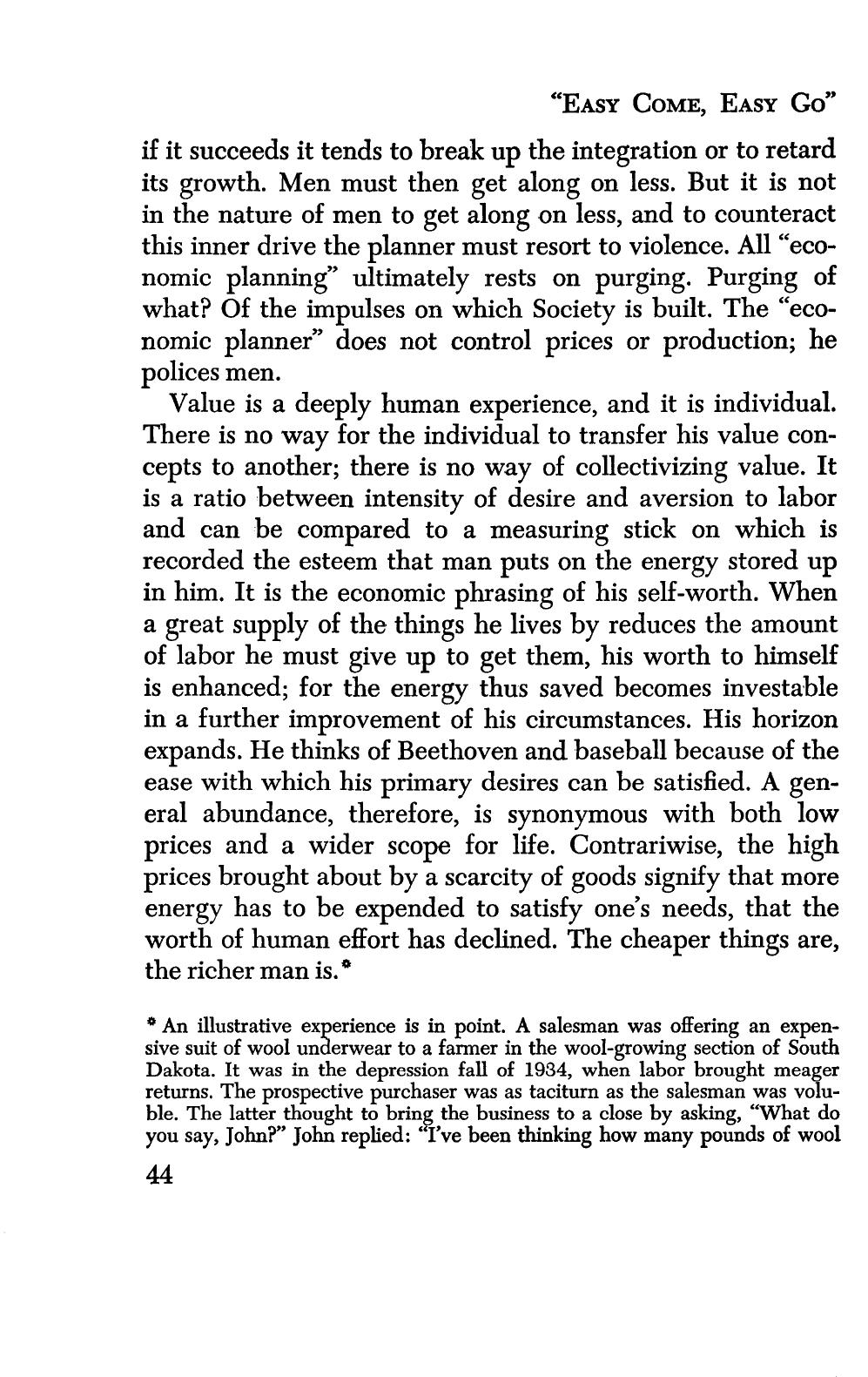if it succeeds it tends to break up the integration or to retard its growth. Men must then get along on less. But it is not in the nature of men to get along on less, and to counteract this inner drive the planner must resort to violence. All "economic planning" ultimately rests on purging. Purging of what? Of the impulses on which Society is built. The "economic planner" does not control prices or production; he polices men.
Value is a deeply human experience, and it is individual. There is no way for the individual to transfer his value concepts to another; there is no way of collectivizing value. It is a ratio between intensity of desire and aversion to labor and can be compared to a measuring stick on which is recorded the esteem that man puts on the energy stored up in him. It is the economic phrasing of his self-worth. When a great supply of the things he lives by reduces the amount of labor he must give up to get them, his worth to himself is enhanced; for the energy thus saved becomes investable in a further improvement of his circumstances. His horizon expands. He thinks of Beethoven and baseball because of the ease with which his primary desires can be satisfied. A general abundance, therefore, is synonymous with both low prices and a wider scope for life. Contrariwise, the high prices brought about by a scarcity of goods signify that more energy has to be expended to satisfy one's needs, that the worth of human effort has declined. The cheaper things are, the richer man is.[1]
- ↑ An illustrative experience is in point. A salesman was offering an expensive suit of wool underwear to a farmer in the wool-growing section of South Dakota. It was in the depression fall of 1934, when labor brought meager returns. The prospective purchaser was as taciturn as the salesman was voluble. The latter thought to bring the business to a close by asking, "What do you say, John?" John replied: "I've been thinking how many pounds of wool
44
